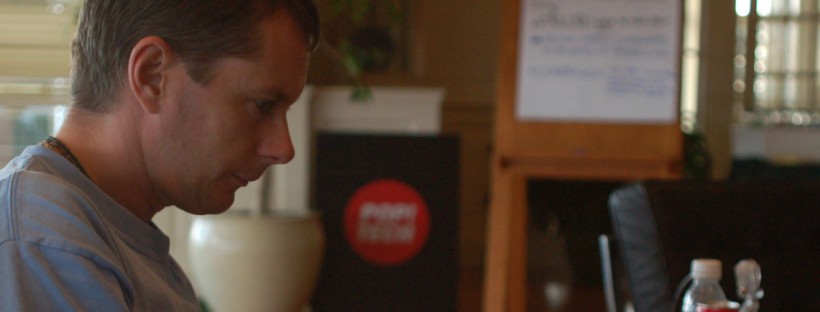I’m all for local solutions to local problems. Or even locally-inspired solutions to local (or national) problems. Or nationally-inspired solutions to local or national problems. I think you get the picture. But one thing I’m not quite so keen on is the default state of international solutions to local problems, or national problems in some cases. Sure, you can quite rightly argue that certain solutions need to be developed internationally to obtain economies of scale, particularly if your solution involves manufacturing, or if you’re working on the environment or in the health arena (after all, malaria is malaria, wherever you are). Just take the One Laptop Per Child Project, or OLPC, for example. For all it’s good and bad points – and I’m not going to go into any of those here – it troubles me on two interconnected fronts. Firstly, it’s international trying to solve local, and secondly, it really doesn’t need to be. Once again we’ve reverted to the ‘default state’ (one day I’ll draw up a diagram of how this should work. I keep getting asked what my ‘model’ is!).
(One point I’d like to quickly clarify here is my own belief in providing tools and not solutions wherever possible. Capacity-building is generally far more effective this way. This blog entry, however, deals with the issue of “solutions” because these are usually what’s offered. Hopefully one day this will also change).
With all the hype around the OLPC project you could have easily thought that it was the only computer-based ‘digital divide’ solution in town. Well, you’d be wrong. It’s quite possible that you may not have heard of some of the others, despite the big names behind them. How about the Eduwise laptop from Intel, or FonePlus by Microsoft? No? Maybe..? Okay, the Personal Internet Communicator from AMD, the chip maker? These are all being touted as THE solution to the digital divide problem (that’s providing internet connectivity/IT to the worlds’ poor, to you and me). A couple of these solutions use similar, but others distinctly different, technical approaches. But the one thing they have in common is they are all US-based responses to problems outside of the US.
 Ever heard of NetTV, NETPC or Novatium? Well, soon you could be hearing a lot more. Ramesh Jain, one of the men behind Novatium, is an Indian. Not surprisingly he knows India, and he’s working on his own (not surprisingly, Indian) solution to India’s own digital divide. Luckily for Ramesh (if that’s the right word to use), his government rejected an offer of a million OLPC’s on the grounds that they were too expensive. His solution – a unit based on a cheap cell-phone chip, no hard drive, a keyboard, a screen and a couple of USB ports – comes in right on the $100 mark (OLPC is hovering around $140 these days). What’s more, Ramesh believes he can get the price down to nearer $70.
Ever heard of NetTV, NETPC or Novatium? Well, soon you could be hearing a lot more. Ramesh Jain, one of the men behind Novatium, is an Indian. Not surprisingly he knows India, and he’s working on his own (not surprisingly, Indian) solution to India’s own digital divide. Luckily for Ramesh (if that’s the right word to use), his government rejected an offer of a million OLPC’s on the grounds that they were too expensive. His solution – a unit based on a cheap cell-phone chip, no hard drive, a keyboard, a screen and a couple of USB ports – comes in right on the $100 mark (OLPC is hovering around $140 these days). What’s more, Ramesh believes he can get the price down to nearer $70.
What’s so different about the two approaches – other than the obvious technical ones and the fact that one is a national and the other an international solution – is that Negroponte’s OLPC is based on heavy subsidies from private and public philanthropy. Ramesh is in it to make money. OLPC- and NetPC-style initiatives often lack sustainability, a ‘minor’ issue which often ends up totally spoiling the party. Look at the history books – the superhighway is scattered with the remains of initiatives forced to leave early with their USB cables dangling between their legs.
Now, a local or national approach to the problem, based on a socially-focused business model? That could just work. It certainly ticks all the right boxes for me.


